The longest-lived Prince consort in British history, blue eyes, stinging gaze. The first man who made Princess Elizabeth fall in love
“The sun was low on the road. Under normal conditions I would not have had any difficulty in seeing the oncoming traffic “, wrote Prince Philip on January 17, 2019 in a letter published by the Sunday Mirror after coming out unharmed from a car accident while at the age of 97 he was driving a Range Rover on a busy English Norfolk road. In the letter he apologizes, declaring himself very contrite about the fortunately not serious consequences of his distraction.
This episode contains some of the distinctive elements of the character of Philip of Mountbatten, Duke of Edinburgh, Prince consort of Queen Elizabeth II of the United Kingdom, who died today at the age of 99. The announcement came through the official channels of the English Royal Family: «It is with deep sorrow – we read – that Her Majesty the Queen announces the death of her beloved husband, His Royal Highness Prince Philip, Duke of Edinburgh. He passed away peacefully this morning at Windsor Castle. ‘
It is with deep sorrow that Her Majesty The Queen has announced the death of her beloved husband, His Royal Highness The Prince Philip, Duke of Edinburgh.
His Royal Highness passed away peacefully this morning at Windsor Castle. pic.twitter.com/XOIDQqlFPn
— The Royal Family (@RoyalFamily) April 9, 2021
Born in the Greek Corfu on 10 June 1921, at Villa Mon Repos, fifth child and only male of Prince Andrew of Greece and Princess Alice of Battenberg, Prince Philip has always been active, combative and outspoken even in justifying a serious mess like having put at risk the life of a person, his subject, because of his own imprudence. After all, in 1922 after his uncle, Constantine I of Greece , was forced to abdicate after the lost war against Turkey, his family was banished and little Philip was transported in a crate of oranges to France.
Life has always been generous and bizarre with him who somehow decided to pay her back with the same coin. He lives until 1928 in a suburb of Paris and under the guidance of another noble uncle, Prince Louis Mountbatten , he goes to live in the United Kingdom to attend Cheam School with his grandmother, Princess Victoria Alberta of Hesse, at Kensington Palace . Over the next three years, her four sisters marry German nobles and their mother is placed in a nursing home for a schizophrenia that will prevent her from having contact with Philip. The father moves to a small apartment in Monte Carlo and he goes to study in Germany. Also Read: Elizabeth II’s official response to Meghan and Harry’s controversial interview
Due to Nazism, the Jewish founder of his school, Kurt Hahn, opens a new one in Gordonstoun, Scotland where Philip also moves. The turning point of his life is the choice to join the Royal Navy in 1939 where the following year at the age of 19 he graduated as the best cadet of his course. He is destined for a brilliant military career until he is assigned to escort Princess Elizabeth of England , her third cousin and daughter of King George VI.
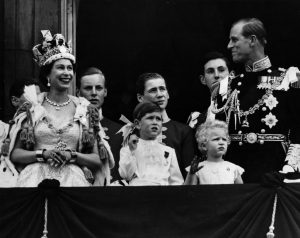
A love at first sight is born which in the summer of 1946 will lead Filippo to ask for the hand of the princess. According to the testimony of the official biographer of the king, Sir John Wheeler-Bennett , Philip made Elizabeth fall in love from the very first meeting and their marriage, in 1947 it went down in history becoming a fundamental part of English history. In 1997, when the queen and prince celebrated their golden anniversary, Elizabeth II dedicated a moving tribute to her husband, saying: “Philip has simply been my strength all these years.” Also Read: Meghan and Harry already have a replacement for Elizabeth II: Beyoncé
Philip renounced his Greek and Danish royal titles, as well as any claim to the Greek throne, converted to the Anglican religion and was naturalized British citizen with the title of Lord Mountbatten.
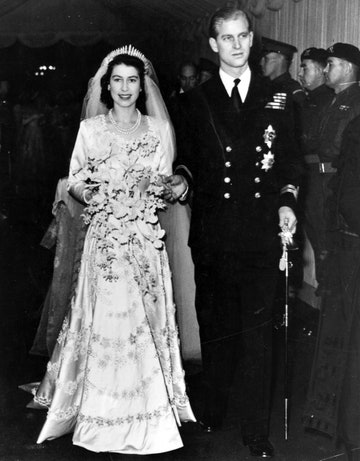
From the moment he found himself being the consort of a queen, Philip was called to share the obligations of a sovereign and to accompany her to ceremonies, state dinners and numerous trips abroad had to give up his career in the navy after the he had been conferred the rank of fleet admiral on January 15, 1953. At the age of 32, Philip had become the noble shadow of a queen, indeed the greatest reigning woman of all time. Record to which he responded as the longest-lived Prince Consort in British history.
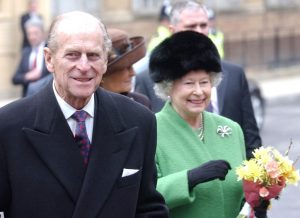
The story of Philip and Elizabeth allows us to overturn an old cliché and to say without fear of being proven wrong that behind a great Queen there is a truly noble man. The greatness of Philip is given by the numbers of his visits, apparitions, speeches and even gaffes.
According to the Countess of Wessex, the secret of the very long love between Philip and Elizabeth lies in irony.
Also Read:
- Why Harry and Meghan Markle will never appear in ‘the Crown’
- Harry and Meghan interview : They revealed how much they have learned from Diana
Laughing has allowed their love to survive the years and opportunities have certainly not been lacking: in Canada in 1969 during a visit Filippo said: “I declare this thing open, whatever it is”; commenting on the attempted kidnapping of Princess Anna in 1974 he said: “If that man had managed to kidnap Anna, she would have made him go through hell during his imprisonment”; in Scotland, in 1995, a driving instructor in Oban asked, “How do you keep the natives away from alcohol long enough for them to pass the test?”; looking at 25 year old Hannah Jackson in 2012 he came up with: “I risk arrest if I unzip that dress” and finally her famous joke about marriage: “When a man opens the door to his wife, or is it a new car or a new wife “.
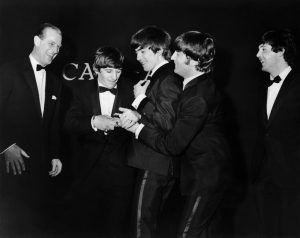
Gaffe and irony aside, Filippo played his role as father of four in an excellent way and attended about 300 events a year. Despite a long string of health troubles, it came until May 4, 2017, the day on which Buckingham Palace officially announced Prince Philip’s retirement from all public engagements.
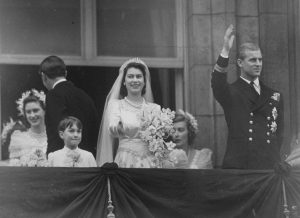
Since then, including the incident of 2019, he has not stopped giving news of himself and his own words after having known the vicissitudes of his life take on an almost prophetic value:
“Change does not change tradition, it strengthens it. Change is a challenge and an opportunity, not a threat. ”
(Philip of Edinburgh)

